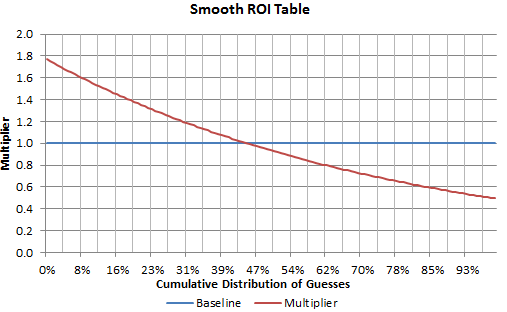I wrote earlier in 2019 an article entitled New Stock Trading and Lottery Game Rooted in Deep Math, see here. It features a number guessing game that — depending on the parameters — mimics either a neutral stock market or a lottery. The gain depends on the distance between your guess and the winning numbers. The average gain is zero, and there is a public algorithm available to compute the next winning number, though this algorithm requires too much computing power to be of any use: in short, the top mathematician or computer scientist in the world has no advantage over the layman, to find winning numbers. Yet because of the public algorithm, it is not technically a game of chance. Also, participants can create their own ROI table (aggressive or not) as long as it is neutral (average expected gain is zero) and within reasonable variance constraints (to minimize the risk for the operator to go bankrupt.)

It is impossible for the operator to know how much float (gains minus losses from the participants) will result in any given day, but it should be around zero with a margin of error ranging from 3 to 5% depending on the strategies (ROI tables) being allowed. This game is offered in 3 different versions: 8-bit system, 32-bit system, or analog.
Now the PowerPoint presentation summarizing this game is available here. For those interested, I will make a presentation about it at the upcoming annual INFORMS conference in Seattle, on October 20. INFORMS is the largest society for Operations Research practitioners.
